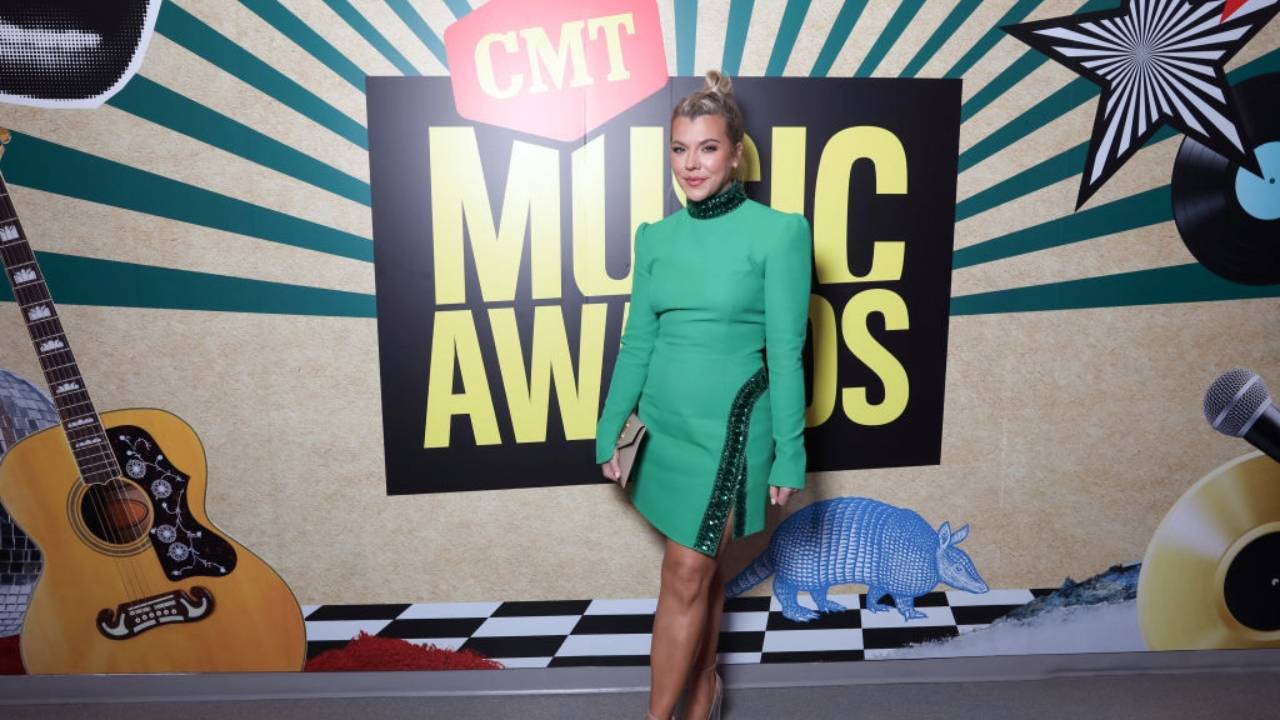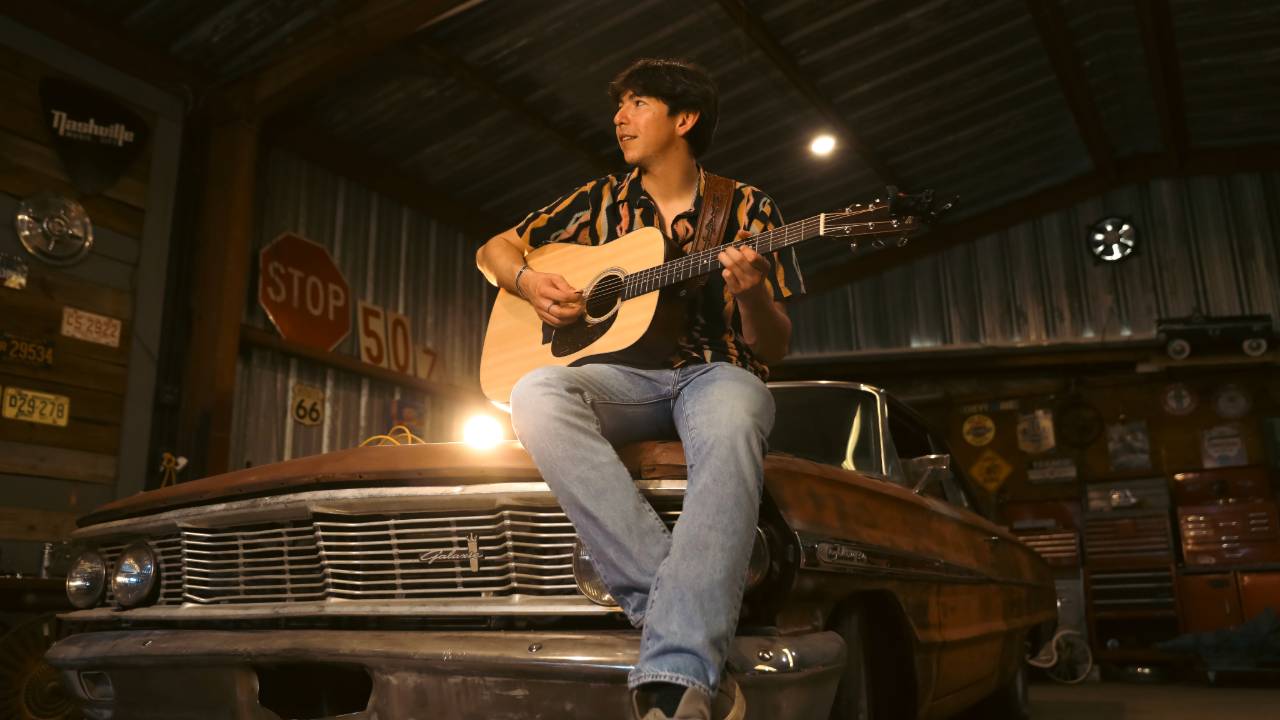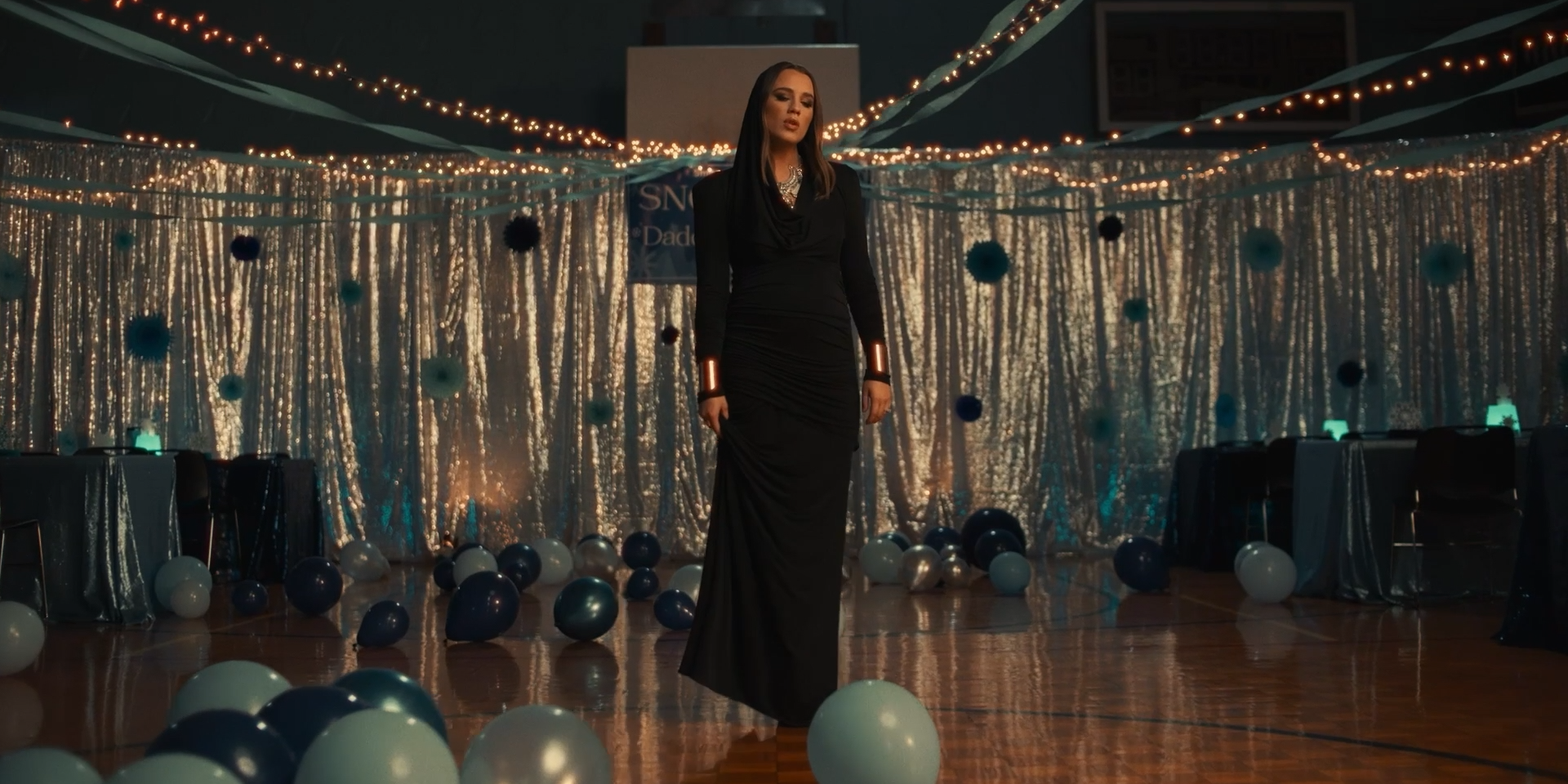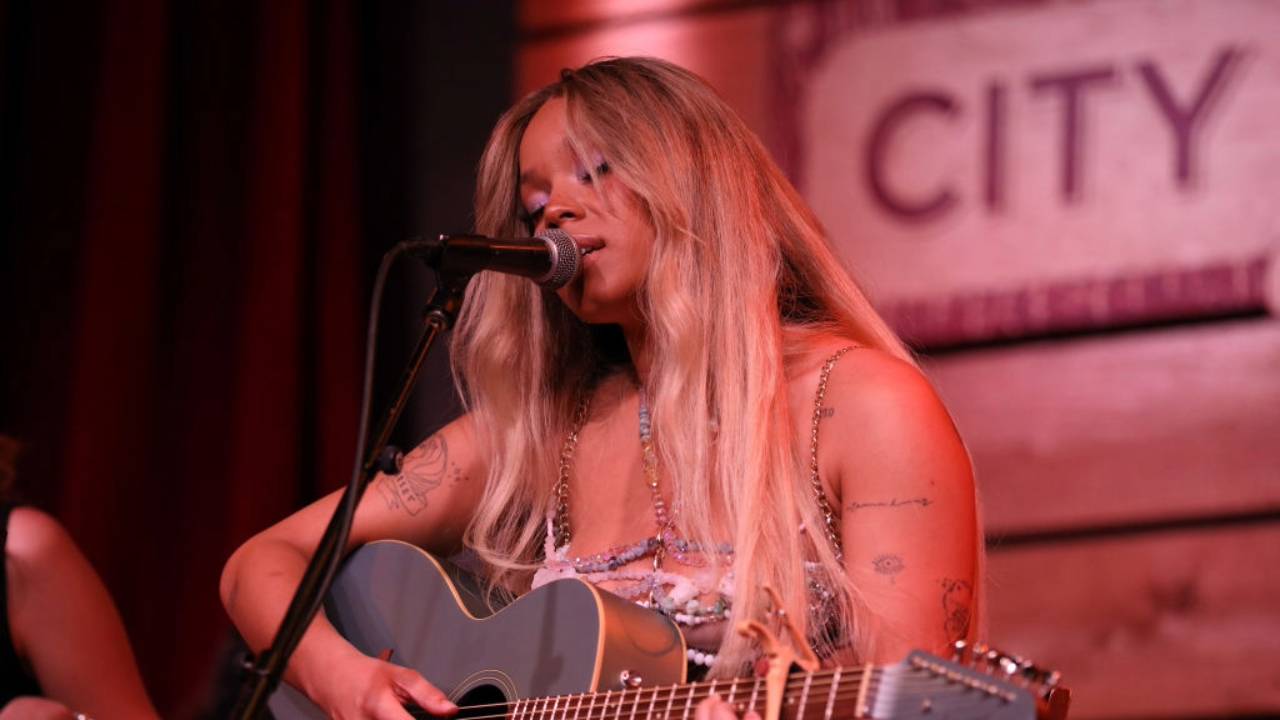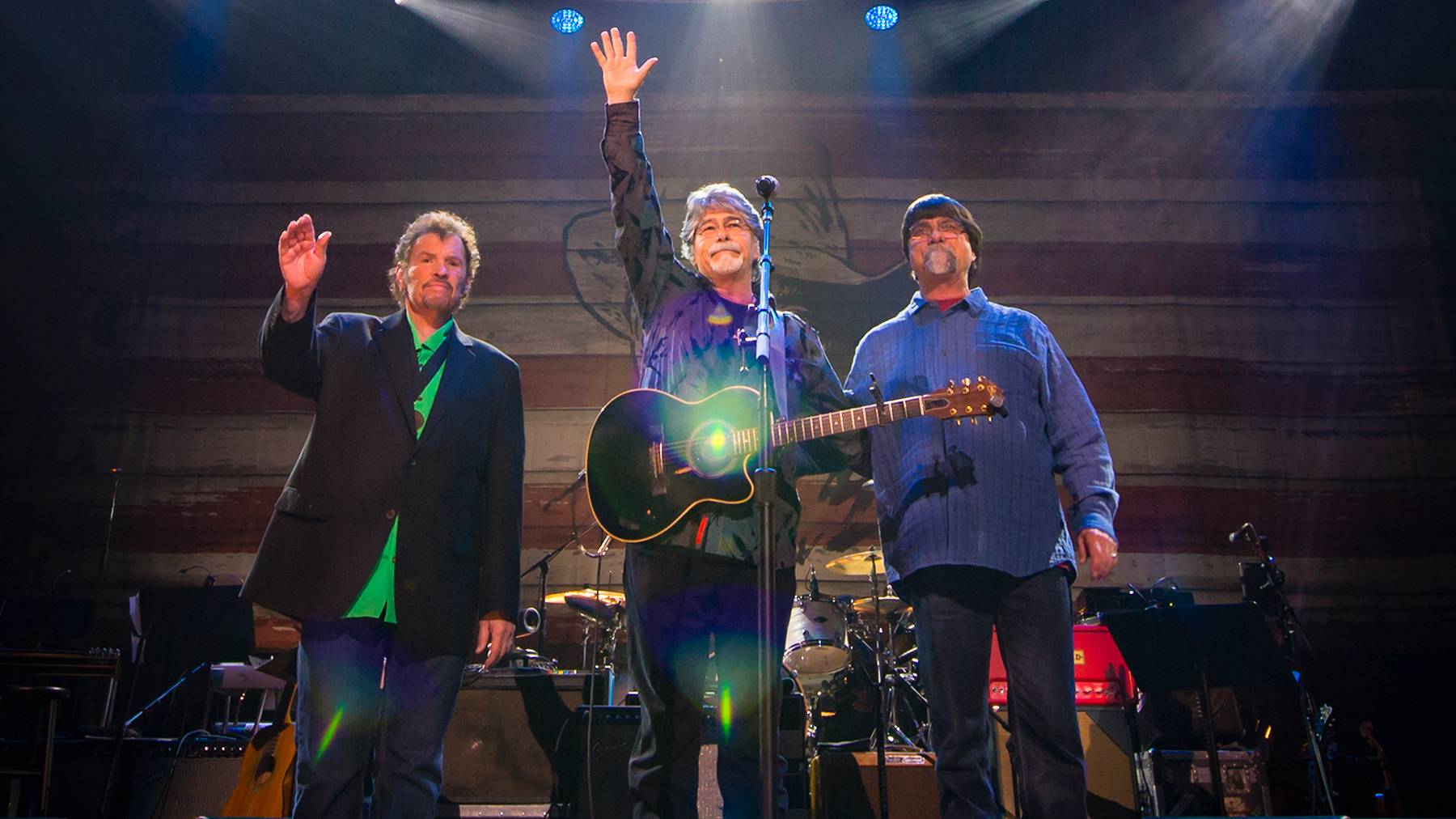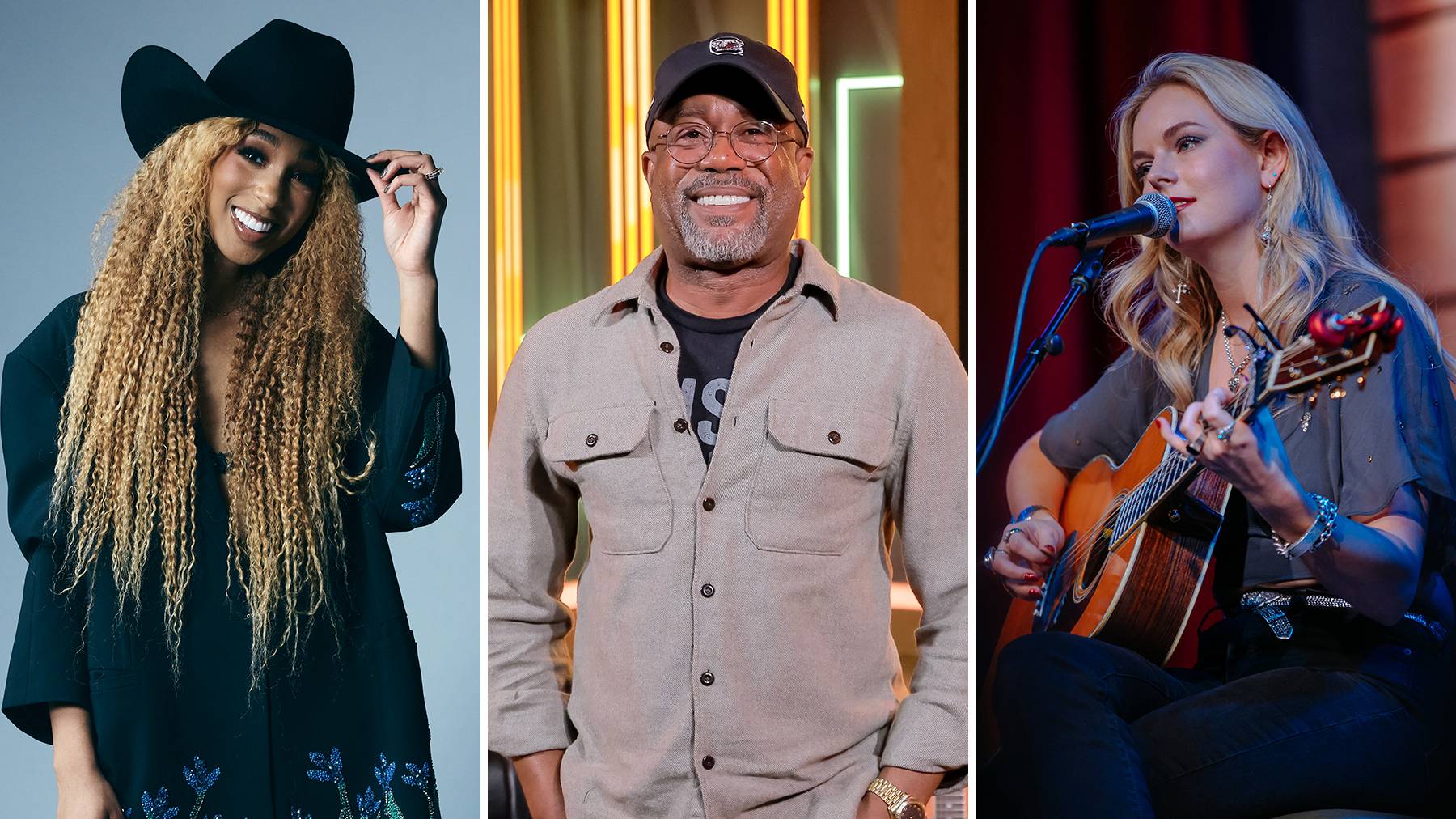Hilary Williams Recalls Tragic Car Accident in 'Sign of Life'

Editor's note: Singer-songwriter Hilary Williams opens her new autobiography, Sign of Life, with a detailed account of a day that changed her life -- a near-fatal car accident that prompted 23 surgeries and an ongoing struggle to learn to walk again. Told in a first-person account, her compelling story boasts a memorable cast of characters: her musical sister, Holly Williams; her proud father, Hank Williams Jr.; and her steadfast mother, Becky Williams. In this excerpt from the first chapter, Hilary Williams recalls the frightening moments just after the car she was driving slid off U.S. 61 in Mississippi in 2006.
As the helicopter approached the scene of the wreck, the flight crew had very little information. They only knew that there had been a single-car rollover with serious injuries. Later one of the Life Flight nurses, Cindy Parker, told me that when she looked out the window and saw the truck, it was so mangled that she couldn't identify it as an SUV. She thought it was a station wagon or something. She also thought there was no way anyone could have survived.
Someone on the ground directed the helicopter to land a good distance away from the truck because a policeman noticed leaking gas and feared the truck might catch fire. When they landed, Cindy and her partner, Cindy Bailey -- "the other Cindy" -- ran over to us.
"Who's the most critical here?"
The EMTs pointed to me. They kneeled down next to me, asked me my name, and one nurse checked me from the toes up while the other checked me from the head down. I kept closing my eyes and as they worked, calling to each other, "We've got to do fluids!" They kept saying, "Hilary! Stay with us, now ..."
Every time I heard my name, I'd open my eyes and try to smile. Although I don't remember this, at one point I actually started laughing a little when Cindy told me her name was Cindy and her partner's name was also Cindy. She said, "See? We're making it easy for you today."
I was so lethargic; I barely had a pulse and evidently I thought this was the funniest thing ever. Cindy and Cindy. Big Cindy and Little Cindy. Like a Saturday Night Live skit.
At some point, the EMTs had also pulled Holly out of the truck and were working on her, too. The crew had called another helicopter for her, which flew in from a different base, just a few minutes behind the first one.
The thing was that I wasn't sure if I'd ever make it on "my" helicopter. I'd lost six pints of blood and, as I lay there, my blood pressure dropped to 55/0. I was between stage 2 and stage 3 of hypoglycemic shock. (There are only four stages; stage 4 is irreversible). I was suddenly overcome by panic and the intense feeling that my chest was caving in and about to collapse. It was like being in a pool drowning. "I can't breathe," I whispered, gasping for breath. "I can't breathe ..."
That's when I lost consciousness. Then, as the paramedics worked to bring me back, I came out of my body, softly and peacefully. Slowly, my spirit lifted, and soon it was as if I was hovering over the scene looking down on the cars and people below. The feeling of panic and all the pain I felt was gone. I was calm as I watched all the activity around the ambulance and the helicopters. I felt completely peaceful, as if I was high on the mellowest of tranquilizing drugs. It was complete peace -- the most joyful feeling I have ever known.
An angel took my hand and I looked up and saw this amazing gold mansion that looked like it was trimmed with icing, like an enormous birthday cake. It was sparkling, gleaming, and glittering.
I can't begin to describe the vibrant, kaleidoscope colors I saw. It was so crazy.
Then I saw Merle Kilgore, my dad's best friend and manager who passed away the year before. Merle was a hilarious, happy-go-lucky guy who had lived an incredible life. He went from carrying Hank Williams' guitar in the '50s to writing songs, such as "Ring of Fire" with June Carter Cash, in the '60s to performing with my dad in the '70s and '80s and then later becoming his manager. Dad tells the best Merle stories, like how he used to keep one of those laugh boxes by his desk, those little battery-operated things you'd get at a gift store. When someone called him with a dumb idea, he'd hold the box to the phone receiver and push the button: Ha-ha-ha-ha!
When I saw Merle that day, he looked wonderful -- not sickly like he did during the months before he died from lung cancer. Here he was right in front of me, smiling and slapping his leg. Then I saw Johnny and June Carter Cash, my dad's godparents. Johnny was playing the guitar and June was playing the harpsichord. Johnny toured with Dad for years; they were really close. Johnny and I share the same birthday -- February 26 -- and even though I never met him, when I turned 10, he called to sing "Happy Birthday" to me. I remember Mom answering the phone, then calling out, "Hilary, you're wanted on the phone." Then she covered the receiver with her hand and whispered, "It's a man with a really deep voice ..."
It felt so good to see them; there was such an overwhelming feeling of love. And the music -- it was gorgeous! It went beyond the song Johnny and June were playing. There were lots of other people sitting in a big circle, singing songs. It was as if they were part of an enormous symphony, all in harmony.
Despite how happy I felt, I couldn't help but think about the movie Scrooge and suspect that I was about to be taken on a tour of my life -- except I'd be wearing my pale pink Uggs and a cute outfit instead of an old nightgown and nightcap. I kept trying to talk. Over and over I said, "Hey! I'm here!" But nobody responded to me. I couldn't control anything; it was as if I had let go because a higher power was in charge. But there was no frustration or sense of loss. It felt amazing -- so much joy! Everything was just perfect.
While still trying to comprehend what was happening to me, I looked over and was stunned to see my grandparents, Hank and Audrey, slowly walking toward me. Both Hank and Audrey died before I was born (in Grandpa Hank's case, long before I was born). I'd never met them on earth but I recognized them right away. I knew them. They looked really young and beautiful; Hank was wearing a white Nudie suit and Audrey was wearing a blue dress with little white polka dots. They walked up to me with big smiles on their faces, and one by one, they each gave me a long hug. I felt absolutely elated.
Then, Hank put his arm around Audrey and they slowly turned and walked away. As I watched them go, I knew I wouldn't be going with them. Then, as quickly as it lifted, my spirit came back down and I returned to my body.
On the ground, the Life Flight nurses had begun infusing a synthetic blood substitute into my veins. The substance, called PolyHeme, is a chemically modified form of human hemoglobin and was developed from research done on the battlefields in the Vietnam War. Because ambulances can't carry blood because it must be kept cool and typed for each patient, PolyHeme was then being tested as an alternative to use with trauma victims at accident sites.
A patient had to fit certain criteria -- you had to be awake, over 18, in a trauma situation, and so forth -- to be included in the PolyHeme study, and I fit most of them. There's been some controversy surrounding the consent aspect of the trial because trauma victims are in no shape to say whether or not they want to participate in the study, but I have no problem with it. I'm grateful they had that substance available in that particular place on that particular day. I believe it saved my life.
After my pulse returned, I was conscious again and one of the Cindys told me they would be moving me to the helicopter and taking me to the hospital in Memphis. So just five minutes after they began the transfusion, they secured my head to the spine board, lifted me onto their stretcher and rolled me over to the waiting helicopter.
